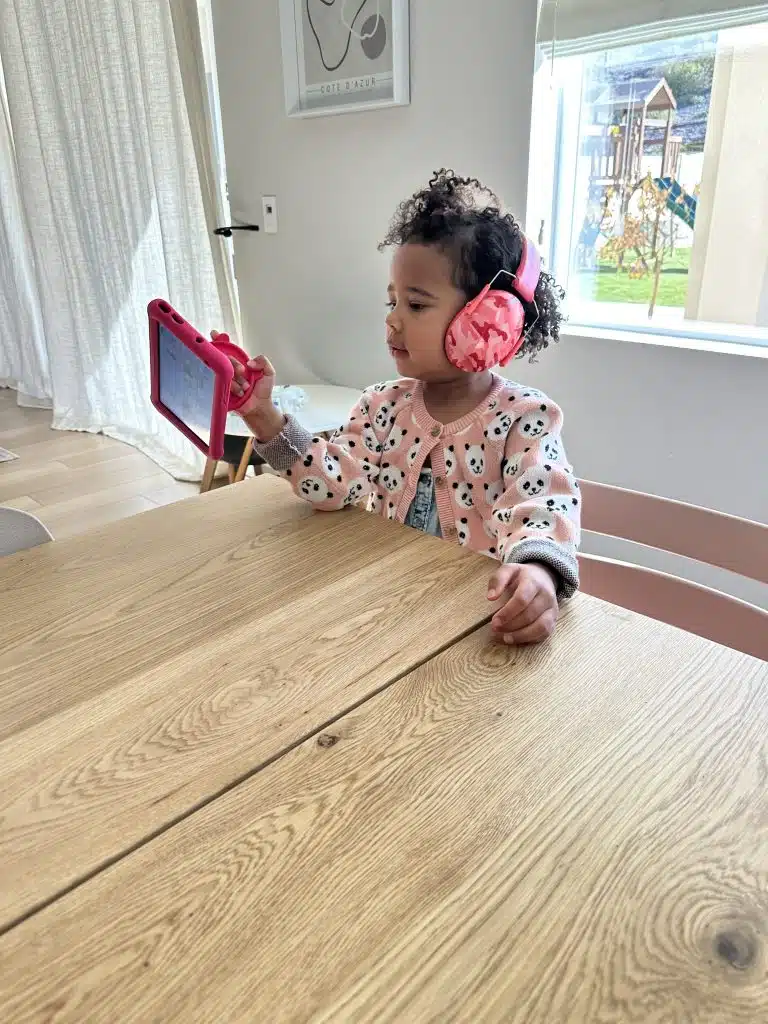Ever wondered how your neurodivergent child navigates the complex world of language? You’re not alone. Understanding the stages of language acquisition can empower you to support your child’s communication journey. In this blog post, we’ll explore the five key stages of language development, discuss the unique challenges faced by neurodivergent kids, and share practical tips to foster their linguistic growth. So, let’s unravel the enigma of language acquisition together!
Table of Contents
Five Stages of Language Acquisition: A Roadmap
Language development typically unfolds in five stages. While every child’s journey is unique, these stages provide a useful framework to track progress and identify potential challenges. Here’s a quick overview:
- Prelinguistic stage (0-12 months): Babies explore sounds, gestures, and facial expressions. They start by cooing, babbling, and imitating adult speech patterns.
- Single-word stage (12-24 months): Kids begin to use single words to express their needs, desires, and emotions. This stage is the emergence of their first words.
- Two-word stage (24-30 months): Children start combining words to form simple phrases, such as “more juice” or “daddy home.”
- Telegraphic stage (30-48 months): Kids create more complex sentences by adding grammar elements, like prepositions and plurals, but still omit some words.
- Fluent stage (48 months and beyond): Children develop a rich vocabulary, master grammar rules, and engage in sophisticated conversations.
“Which language games will help my kid the fastest?” 👇
Goally’s tablet has some of the top language learning games & apps that help kids learn their first 50 words, practice finger dexterity & fine motor skills, AND communicate with AAC.
For example, during the prelinguistic stage, you might notice your child cooing and babbling as they experiment with different sounds. As they progress through the stages of language acquisition, their communication skills will continue to grow and evolve. When do kids learn to read?
Neurodivergent Kids and Language Development: Unique Challenges
For neurodivergent kids, the stages of language acquisition may unfold differently. They might experience delays, develop atypical speech patterns, or face difficulties with social communication.
Some common challenges include:
- Delayed speech or language milestones
- Difficulty understanding or using nonverbal cues
- Struggles with conversation skills, such as turn-taking or topic maintenance
- Literal interpretation of idiomatic expressions or sarcasm
- Repetitive speech or echolalia (repeating words or phrases)

Read more: Child Development Stages
However, it’s essential to remember that neurodivergent kids possess unique strengths and abilities. By understanding their language development journey, you can provide tailored support and celebrate their progress. Goally’s learning tablet for kids and apps can be a valuable resource in this journey, offering customized tools and activities to support your child’s communication skills.
Practical Tips to Foster Language Development in Neurodivergent Kids
Here are some actionable strategies to nurture your child’s language skills:
- Encourage communication: Create opportunities for your child to express themselves, even if it’s through nonverbal means like gestures or facial expressions. Praise their efforts and provide positive reinforcement.
- Model language: Speak clearly and use simple sentences. Repeat and expand on your child’s words to help them learn new vocabulary and grammar structures.
- Read together: Engage in shared reading experiences using books with rich illustrations and simple text. Ask open-ended questions to spark conversation and build comprehension skills.
- Play with language: Use songs, rhymes, and games to make language learning fun and interactive. Encourage your child to experiment with sounds, words, and sentences.
- Seek professional support: If you’re concerned about your child’s language development, consult a speech-language pathologist or other specialists. They can provide tailored guidance and intervention strategies.
Moreover, consider incorporating Goally’s learning tablet and apps into your child’s daily routine. These tools are to support neurodivergent kids and can help reinforce language skills through engaging activities and games.

“I found Goally on Instagram a few months ago and I thought, this sounds like a perfect aid for Ivy. Ivy had just started speaking, but her communication was still very minimal. Goally’s visual schedule and AAC-inspired Talker had me really interested. While we want and believe Ivy will find her voice and spoken language, we also believe that communication comes in many forms. Goally has helped us offer our daughter a voice while she learns to find her own. The key is to support communication in whatever form that takes.” – Cassidy I.
Embracing the Journey: Every Child’s Path is Unique
In short, understanding the stages of language acquisition can help you support your neurodivergent child’s communication journey. Keep in mind that every child’s path is unique, and progress may not always follow a linear trajectory. By celebrating their strengths, providing tailored support, and fostering a language-rich environment, you can empower your child to thrive in their own way. So, embrace the journey and watch your child’s language skills blossom with the help of resources like Goally!
This post was originally published on 05/17/2023. It was updated on 08/7/2023.

Goally
We help parents teach their kids life skills, like doing bedtime and morning independently. Backed by science, we incorporate evidence-based practices and expert-informed designs in all of our apps and content.





